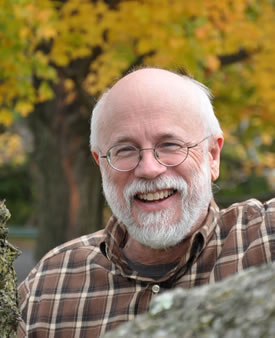 Michael Behe’s new book at Amazon: Darwin Devolves: The New Science About DNA that Challenges Evolution is due February 26, 2019. No cover image as yet.
Michael Behe’s new book at Amazon: Darwin Devolves: The New Science About DNA that Challenges Evolution is due February 26, 2019. No cover image as yet.
From HarperOne:
The scientist who has been dubbed the “Father of Intelligent Design” and author of the groundbreaking book Darwin’s Black Box contends that recent scientific discoveries further disprove Darwinism and strengthen the case for an intelligent creator.
In his controversial bestseller Darwin’s Black Box, biochemist Michael Behe challenged Darwin’s theory of evolution, arguing that science itself has proven that intelligent design is a better explanation for the origin of life. In Darwin Devolves, Behe advances his argument, presenting new research that offers a startling reconsideration of how Darwin’s mechanism works, weakening the theory’s validity even more.
A system of natural selection acting on random mutation, evolution can help make something look and act differently. But evolution never creates something organically. Behe contends that Darwinism actually works by a process of devolution—damaging cells in DNA in order to create something new at the lowest biological levels. This is important, he makes clear, because it shows the Darwinian process cannot explain the creation of life itself. “A process that so easily tears down sophisticated machinery is not one which will build complex, functional systems,” he writes.
In addition to disputing the methodology of Darwinism and how it conflicts with the concept of creation, Behe reveals that what makes Intelligent Design unique—and right—is that it acknowledges causation. Evolution proposes that organisms living today are descended with modification from organisms that lived in the distant past. But Intelligent Design goes a step further asking, what caused such astounding changes to take place? What is the reason or mechanism for evolution? For Behe, this is what makes Intelligent Design so important. More.
Devolution… at last, something Darwinism really explains!
How odd that genome mapper and theistic evolutionist Francis Collins should have helped kill Darwinism before he got most Christians to buy into it.
See also: Devolution: Getting back to the simple life.